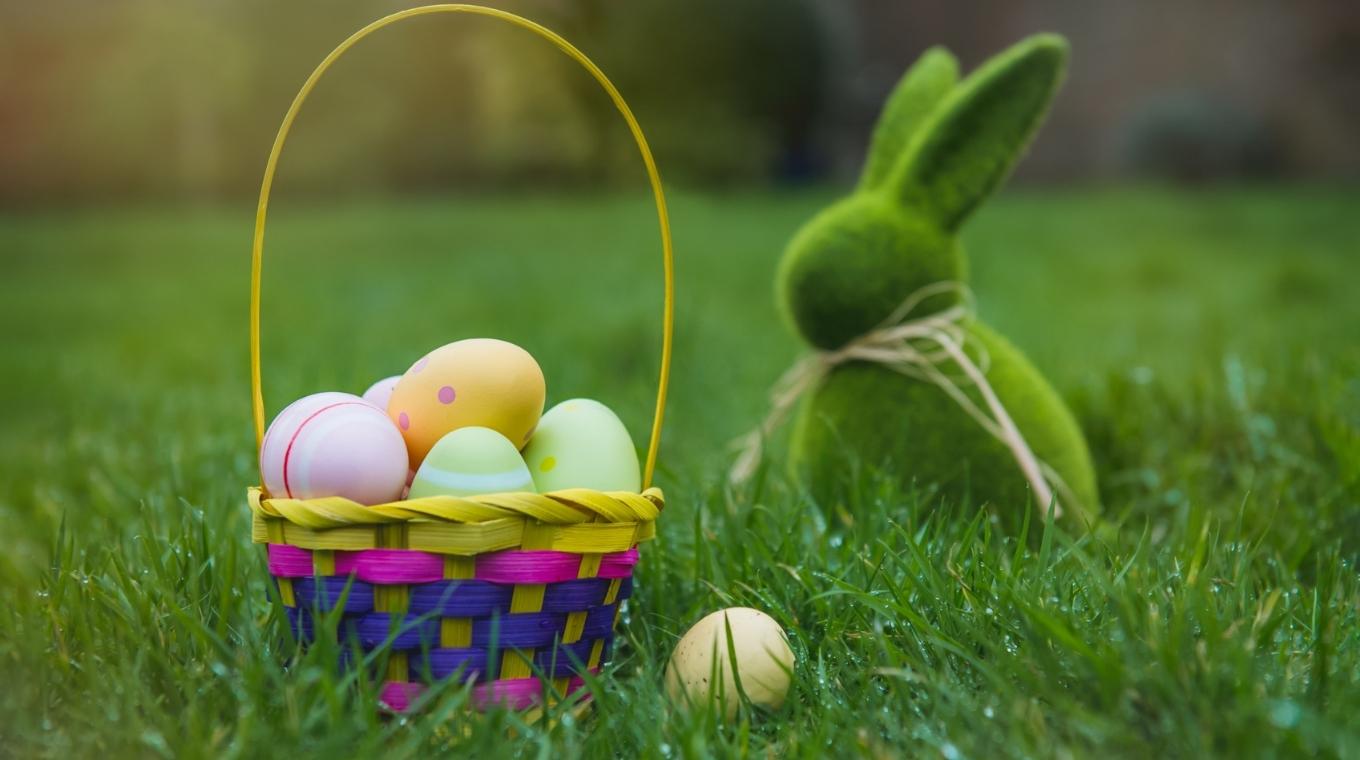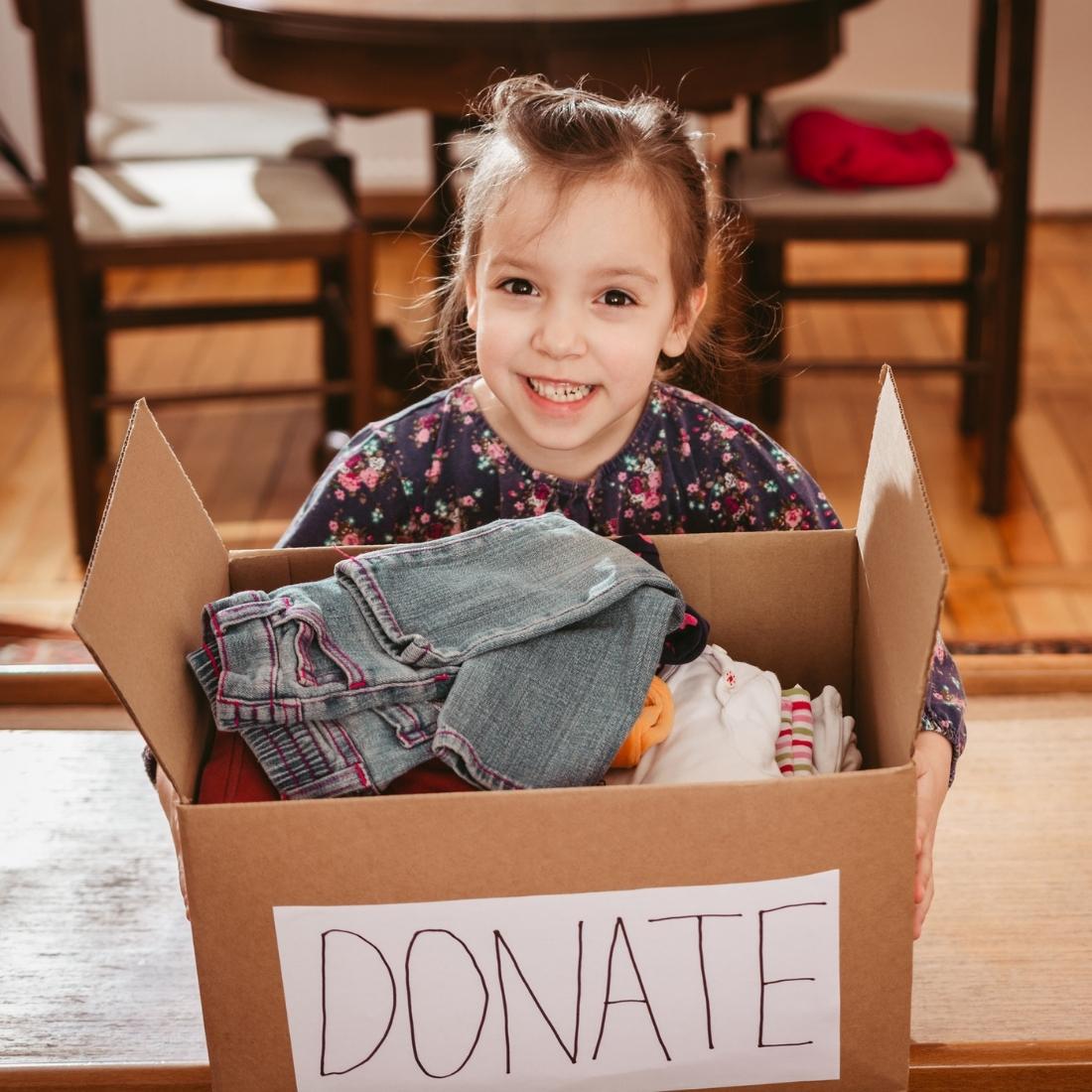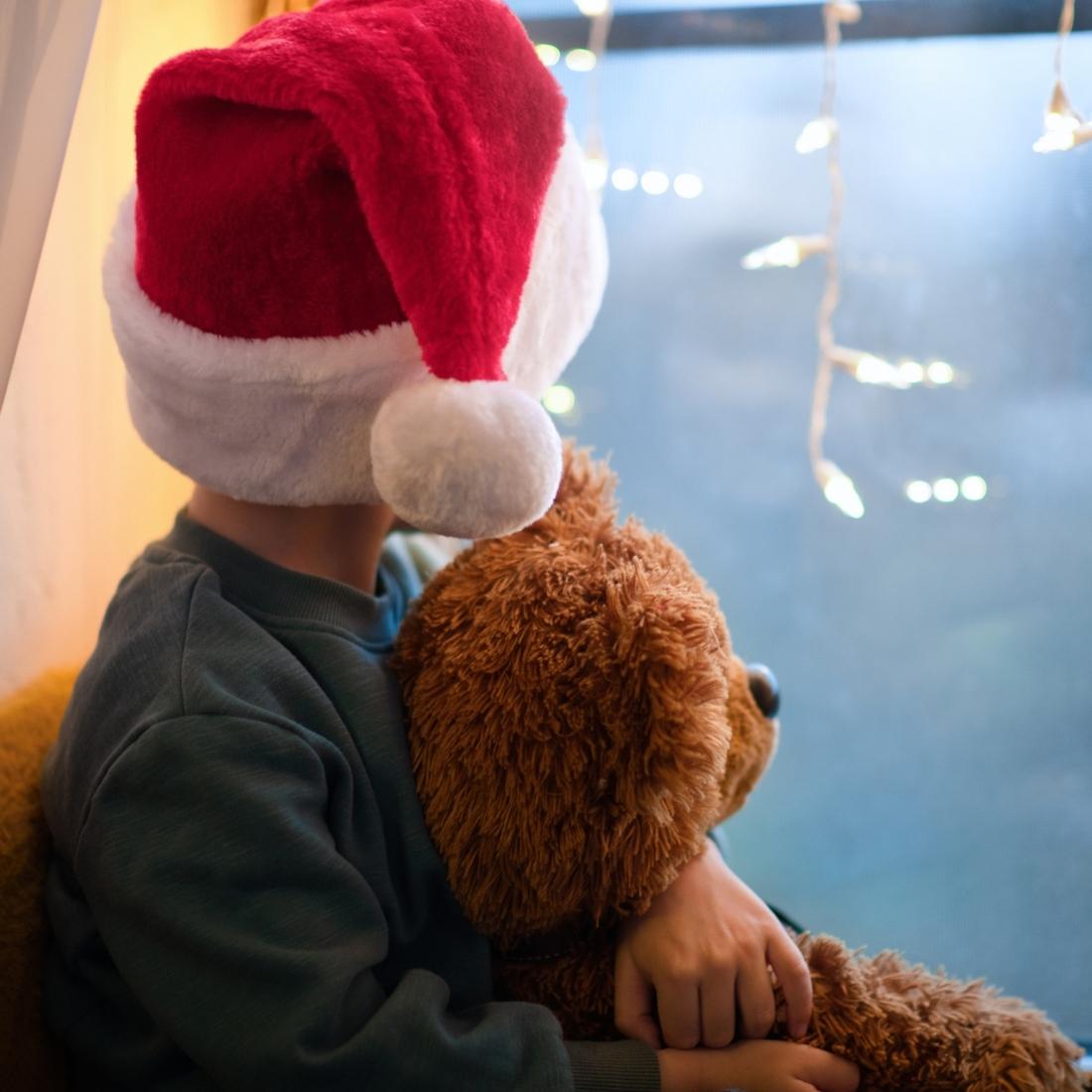
The Santa subject can be very touchy in some households. A lot of parents struggle to navigate when the right time to tell kids "the truth" about Santa is. Some parents take a hands-off approach and let their kids figure it out, while others guide them through.
The conversation could be framed differently, however, and have a great and more meaningful impact. Kristene Geering, content director at Parent Lab, an app dedicated to helping parents navigate all different aspects of parenting with an evidence-based approach, opened up to LittleThings about her own experience.
Kris provided the perspective of evolving your child's relationship with Santa rather than putting an ax to it. She opened up about how that worked in her household.
Kristene was very intentional with her approach.
Like many moms, Kristene Geering wanted to make sure she handled her children's relationship with Santa in the healthiest way possible.
"I remember when they started asking more questions about logistics as they got older that I felt nervous. I really wanted to get it right! I wanted to give them the same gift my mother gave me, of having that magic be a part of their lives," she shared.
"For our family, we've been able to negotiate this successfully, as well, and I think it's because I very intentionally took a developmental approach."

"So when the kids were very little, Santa was the guy with the hat and he ate the cookies and the reindeer nibbled the carrots we left out and it was all fine. But as they got older, we started talking more about the logic of it all: How can he go to that many houses in one night? What about kids who don't celebrate Christmas?" Kris explained.
"Then we started talking about the magic behind it — because that was more abstract, and kids move from concrete to abstract as they grow. As they got older, we went further and talked about the definition of magic and what that really means, and what things in life we find magical … and most of those things have to do with presence, love, and selflessness."
She broached the subject with her 11-year-old twins.

"This year I asked the kids where they were in the whole Santa thing, and my daughter explained that she thinks it's more the magic of giving and that this magic can really inhabit anyone, and it might be that her parents had been playing Santa all along but that was OK because the magic is still there," she continued.
Kris then took the opportunity to tell her kids the story of her own experience with Santa.
Kris' own mom was at the heart of her feelings on the subject and how to handle it.

"When I was growing up, my mom went out of her way to make sure that holidays were as magical as she could make them. Even as I grew up and left home, she made sure that I had a little magic," she shared.
"Whether I was on the other side of the country or the other side of the world, a box from Santa or the Easter Bunny or whoever would show up. Many years later, she got very, very sick, and I went home to take care of her at the end of her life."

"She died the week before Easter. I remember waking up Easter morning and sobbing and sobbing because it meant the Easter Bunny was really truly dead … and when I opened the front door, there was a basket there," Kris continued.
"This story still moves me to tears. That was the moment when it crystallized for me — that the magic she created for me was an extension of her love for me, and that would never, ever die. I learned that that kind of magic can manifest in anyone, anywhere, and we can be a blessing on someone's life in ways we never thought possible."
Kris' kids are starting to understand that magic.

"So this year, for the first time, the twins have said they're willing to embody that magic and love, and they'll be filling the stockings of Mommy and Daddy," she shared.
"They'll also look for other opportunities to give and feel how that magic and wonder."
Kris offered tips for families to see the bigger picture of the holiday.

Some moms admit to struggling to communicate the message of the bigger meaning behind holiday magic in all the excess, grandeur, and gift-giving. Kris offered her suggestions for how to get that across.
"We don't spend much time on what gifts we want, honestly. Of course, we talk about it a little, but we spend a lot more time talking about the stories behind the Christmas ornaments or taking time to simply sit in a room lit only by the Christmas tree. We try to see what's special and wonderful about this time of year, and we also talk about how others may be struggling and how we can help," she shared.
"It may be something as simple as picking out cans of soup to donate or making hats and scarves for those in need or even handing out food at a local church, but we try to do something every year — several times a year, really, but especially this time of year — to help others in our community. I think when the kids focus on what they can do for others, on how they feel when they truly help, they don't spend as much time thinking about what they'll get because giving is so rewarding."

"There is also the reality that for some families tragedy or hardship has hit really hard — especially in the last couple of years. If your family is in that space, breathe and get through it as best you can, and if it's possible, find gratitude even for the smallest things and share that with your kids," she noted.
"There's a lot of emphasis in our culture on what you 'get,' instead of realizing what you already have. If you're able to hold your child this year, take a moment to do that and really breathe in what a gift that is in itself … and then share your feeling with your child: 'I love that you're my kid, and I feel so blessed to be your mom.'"
We asked Kristene what tips she and her twins had for the ways that kids can be the magic for those in their lives when that time comes.

"You can embody the magic by getting something for someone in your family, and really thinking about what they would want and what would make them happy," her 11-year-old daughter advised.
"Even better is if you can give something to someone you don't even know, something they really need. Like, giving a warm hat to someone who's cold. That makes you feel really good, like you're making a difference in the world."

"Don't tell the person ahead of time — let it be a surprise for them. Because then they feel more magic when you bring it to them," her son added.
"It being the magic makes me feel happy because then people, especially people in need, it warms their heart. And it warms your heart when their heart is warmed."

"Practice noticing when other people are happy. Start with yourself and notice how you feel inside. Look at how someone's eyes crinkle and then twinkle when they're truly joyful. Notice how their faces and bodies move when they're really happy," Kristene advised.
"If you're giving gifts to a loved one, pay attention to the things that make them feel happy and see if your gift can spark that same feeling. If you're giving gifts to someone you don't know, imagine how they'll look and feel when they receive that gift. That is the magic, that feeling you have inside when you know you've done something to bring someone else joy."




